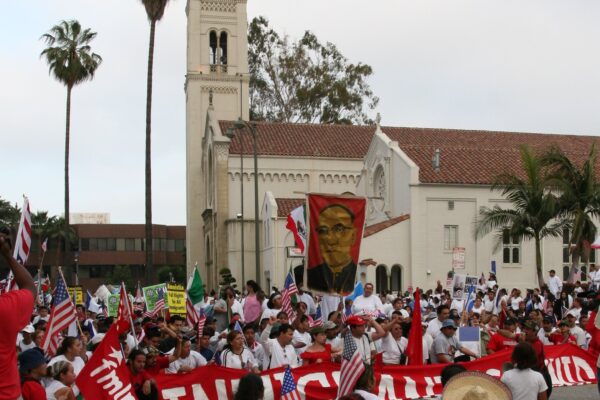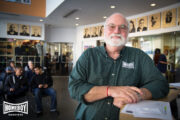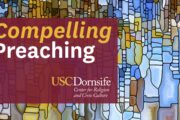This post originally appeared on Religion Dispatches.
Pope Francis may differ greatly in tone from Pope Benedict, but on many social issues Francis can expect the same pushback his predecessor received in the United States.
When Pope Benedict brought up immigration on his 2008 trip to the United States, for example, conservative voices argued that his support of immigrants was self-serving. Then-Representative Tom Tancredo, a Republican from Colorado, accused the pope of “faith-based marketing,” according to the New York Times:
Mr. Tancredo said Benedict’s comments welcoming immigrants ‘may have less to do with spreading the Gospel than they do about recruiting new members of the Church.’
NPR‘s recent story on immigrant Catholics shared a similar perspective, minus the venom. The U.S. Catholic Church, the story notes, “depends on immigrant members to replenish its ranks. … Not surprisingly, immigrants will get a lot of attention from Pope Francis on his upcoming U.S. visit.”
It’s certainly notable that Francis is the first pope from Latin America and that he is, as he put it (both when he landed and in his speech to Congress), “the son of immigrants.”
Yet framing the Catholic Church’s concern for migrants either as a personal interest of Pope Francis or as part of a numbers game discounts the moral and religious reasons behind the Catholic Church’s actions. Also implicit in the latter explanation is the misperception, common to many American observers, that the United States is at the center of the church’s concerns. In reality, the Catholic Church’s interest in immigration ranges far beyond the Latino and Asian immigrants bolstering the ranks of the U.S. church.
“For us Christians [working for refugees] is an expression of the love of the Father in Christ Jesus,” Pope Francis said of working with refugees when he visited Centro Astalli, the Jesuit Refugee Service’s Center in Rome two years ago.
Before mentioning migrants from Latin America traveling north to the United States in his speech to the U.S. Congress, Pope Francis spoke of Europe’s immigration crisis. “Our world is facing a refugee crisis of a magnitude not seen since the Second World War,” he said. He will likely spend more time on this topic at the United Nations.
People from Syria—but also Mali, Gambia, Nigeria, Iraq, Afghanistan and elsewhere—are streaming into Europe by sea or by foot. Most of them are not Catholic, but Muslim.
As I wrote earlier this year, the Catholic Church has been at the forefront of welcoming migrants in Italy; more recently, Pope Francis has called on parishes to take in migrant families.
At Centro Astalli, Muslim men go to a back dining room in a loud, crowded soup kitchen and prostrate themselves on prayer rugs in the afternoon. Pentecostal trafficking victims I spoke to at a Catholic shelter told me they felt no pressure to convert even as they attended Mass with the Catholic sisters who were helping them.
At a branch of Centro Astalli in Catania, Sicily, a fully habited sister sat next to a veiled Muslim woman teaching recent migrants Italian. A Muslim woman staying in a decommissioned church in Palermo, Sicily said that a nearby church had offered its courtyard to the Muslim community to celebrate holidays.
The church’s position on welcoming immigrants of all faiths and nationalities comes from Matthew 25:35-40, in which Jesus says, “For I was hungry and you gave me something to eat, I was thirsty and you gave me something to drink, I was a stranger and you invited me in…. Whatever you did for one of the least of these brothers and sisters of mine, you did for me.”
At first, when the ordinary Italians I spoke to referred to immigrants as “strangers,” I thought it was simply a matter of translation. But I came to understand it as an echo of Matthew 25:35-40, in which Jesus says that his face should be seen in every stranger.
Pope Francis, too, spoke of “the stranger in our midst” in his address to Congress after noting that he and “so many of you” descend from immigrants. “We must not be taken aback by their numbers, but rather view them as persons, seeing their faces and listening to their stories, trying to respond as best we can to their situation,” he said.
He challenged the U.S. Catholic bishops on this issue as well. The national bishops’ conference has been vocal supporters of immigration reform, but the diversity of migrants also challenges the church on a local level. Veteran New York Times religion reporter Laurie Goodstein covered these tensions without framing the church’s interest in immigration reform as a play for more members.
“Do not be afraid to welcome them,” Francis told the bishops. “Offer them the warmth of the love of Christ and you will unlock the mystery of their heart. I am certain that, as so often in the past, these people will enrich America and its Church.”
Critics of the church’s stance on immigration—and indeed, even some bishops—may hear “enrich” as filling the offering plate. But Pope Francis the pastor is interested in souls—including the souls of those in the place to provide hospitality.
“The poor are also privileged teachers of our knowledge of God; their fragility and simplicity will unmask our egoisms, our false securities, our pretenses of self-sufficiency, and guide us to the experience of the closeness and tenderness of God,” he said at Centro Astalli.
Welcoming the migrant is not just a political act; it’s a spiritual one.
Megan Sweas is the editor and director of communications with the USC Center for Religion and Civic Culture.



